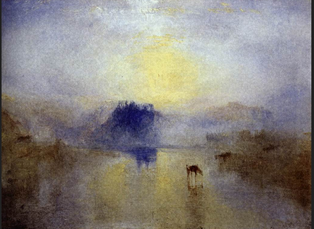|
Formal negotiations are a key part of communication — in law, business, politics and war (when the fighting is over, that is).
Informal negotiations are an everyday part of our lives — at work, at home and in our important relationships. I am not an expert in the art of negotiation. I'm not sure I'm even good. But I have been working hard over the years to develop a few of the key skills and techniques required to create more win-win outcomes. Here are my top four:
Willard Harley, a marriage counsellor and clinical psychologist who teaches couples a win-win approach to negotiation, explains in his book He Wins She Wins the following: Marriages do not hold up over the long term when disputes and differences are generally resolved by having one partner sacrifice/lose so the other partner can win. While sacrifice as a strategy can work well when you are dating (i.e., who hasn't spent time doing things you really didn't have an interest in during the early days?), it doesn't take much time before sacrifice/losing becomes both expected and unappreciated. Letting your spouse "win" as an act of caring usually leads to one partner being unhappy and resentful. Bit by bit, it eats away at loving relationships. Both parties need to be willing in good faith to reach an agreement that satisfies both sides. Add this:
The art of negotiation is way more complicated. But in simplistic terms, these skills and techniques go a very long way toward improving our ability to:
Negotiate well, Coach Minda For more insights into listening and understanding another persons point of view, check out two blogs: The Wandering Mind & The Art of Perspective
237 Comments
We all have moments when we lose faith in ourselves, in others and in life. A temporary state of being short on optimism, energy, motivation and confidence.
A loss of faith translates into a loss of hope. When there is no hope, you give up and stop trying. Maybe you don't believe:
Sometimes a long period of darkness is triggered by a personal tragedy: a diagnosis of an illness, a situational depression or a string of bad luck and misfortune that darkens our horizon. But, hope can return. How do you "turn on" and move towards the light?
Your effort is what moves you towards hope and light. Please share how you find the light at the end of the tunnel? Your stories will inspire and support those who feel in the dark. Into the light, Coach Minda The only means of strengthening one's intellect is to make up one's mind about nothing, to let the mind be a thoroughfare for all thoughts. John Keats -brainyquote I'm writing this blog while on the VIA train from Ottawa to Montreal. Not nearly as romantic as traveling on the mythical Tran-Siberian railway stretching over 9,000 kilometers. Or a ten-hour train from Kochi to Goa along the western coast of Southern India. Still, railways and even the train I'm on has always inspired romantic musings. When I'm being a romantic, I lean more towards instinct. I listen more to my inner voice and longings. I desire connection. I feel a greater openness to the unknown. I crave freedom to live according to my own version of, “I got to be me.” I want to party, dance and listen to loud music. The romantic in me resists strict rules, traditions, recipes, conventions and good manners that aren’t sincere. I am slayed by beauty, nature, words, challenging conversations, humor and boldness (and not by flowers, chocolates and candle-lit dinners). This is in contrast to my no-nonsense, down-to earth, sensible, practical and considerate self. The train moves out of the station. I ready myself to be transported for two hours to a private state of free-floating romanticism. Ready to be moved by the snowy landscape out the window, reflect on my disappointments, toss out the "shoulds", order and control and pine away - long, yearn and want. I sit alone on the train waiting for "it" to happen. I wait patiently. Not even a watered down romantic thought reveals itself. What has happened I wonder? The romantic spirit does not visit me. I remember it's Saturday and the romantic spirit might be enjoying a day off, skating on the canal in Ottawa. I comfort myself with this thought: My life is good, complete and satisfying. My romantic sensibilities have slowly been absorbed and integrated into who I am. Perhaps my romantic leanings will re-surface when I really need them. Or,
My romantic spirit is no longer roaming, but is comfortable at home. What about you? Spiritedly yours, Coach Minda  J. M. W. Turner, Yacht Approaching Coast (1840) J. M. W. Turner, Yacht Approaching Coast (1840) Romanticism was a movement in the arts and literature which originated in the late 18th century, emphasizing inspiration, subjectivity, and the primacy of the individual * {online oxford dictionary} |
My family, relationships, movement, nature, flexibility of mind, exploration of alternative perspectives & openness are central to my life.Archives
December 2021
|
Private and confidential
|
Connect with me
|



